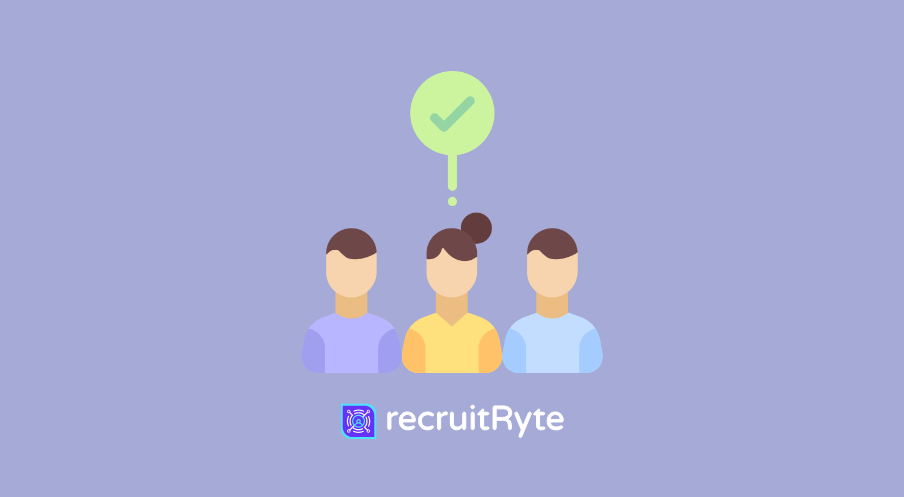Introduction:
In the hiring landscape, biases often cloud judgment, leading to decisions that favor certain demographics while inadvertently excluding others. Be it gender, race, age, or other factors, biases in hiring processes can perpetuate inequality and impede diversity in workplaces. However, the emergence of AI recruitment tools offers a promising solution to foster fairer, more inclusive hiring practices.
Understanding Bias in Hiring:
Bias in hiring manifests in various forms, often stemming from unconscious prejudices that influence decision-making. Research demonstrates that even well-intentioned hiring managers can succumb to biases, resulting in discriminatory outcomes. For instance, resumes with names perceived as “ethnic” or “foreign” face lower callback rates compared to those with more “standard” names, underscoring the pervasive nature of bias in hiring.
Challenges of Traditional Hiring Practices:
Conventional hiring methods heavily rely on subjective assessments, leaving room for biases to infiltrate unnoticed. When decisions hinge on gut instincts or subjective judgments, deserving candidates may be overlooked merely because they do not fit preconceived notions of an ideal candidate. This perpetuates a cycle of uniformity in workplaces, sacrificing diversity for familiarity.
Introduction to AI Recruitment Tools:
AI recruitment tools represent a transformative force in the pursuit of fairer hiring practices. Unlike traditional approaches, these tools leverage algorithms and data analysis to render objective assessments of candidates’ qualifications, eliminating human biases from the equation. They offer a spectrum of functionalities, from anonymizing resumes to scrutinizing language in job postings for bias.
How AI Tools Address Bias:
AI recruitment tools confront bias directly by incorporating features aimed at leveling the playing field for all candidates. Through resume anonymization, these tools ensure that candidates are evaluated solely based on qualifications, devoid of any preconceived judgments based on demographic details. Furthermore, algorithms can identify biased language in job postings, prompting recruiters to rephrase them for inclusivity.
Potential Limitations and Ethical Considerations:
While AI recruitment tools offer promise, they are not devoid of challenges. Algorithmic bias, data privacy concerns, and the lack of transparency in decision-making pose potential hurdles that organizations must navigate. Additionally, continuous monitoring and evaluation are imperative to ensure the ethical and responsible use of these tools.
Best Practices for Implementing AI Recruitment Tools:
For organizations contemplating the integration of AI recruitment tools, several best practices can enhance their efficacy while mitigating risks. Rigorous evaluations of tool providers, diverse datasets for training algorithms, and training sessions for recruiters and hiring managers on the responsible use of AI tools are pivotal steps in the implementation journey.
Harnessing the Potential of recruitRyte:
A standout AI recruitment tool at the forefront of bias mitigation is recruitRyte. With its sophisticated algorithms and intuitive interface, recruitRyte revolutionizes hiring by prioritizing fairness and inclusivity. Integrating recruitRyte into your recruitment strategy ensures that hiring decisions are based solely on merit, leading to a more diverse and talented workforce.
Discover the transformative capabilities of AI recruitment tools with recruitRyte. Bid farewell to bias and welcome a workplace culture that embraces diversity and meritocracy. Explore more about recruitRyte and revolutionize your hiring practices today!
By embracing AI recruitment solutions like recruitRyte, organizations can level the playing field for all candidates and unleash the full potential of their workforce. It’s time to embrace innovation and pave the way for a future where talent is valued based on merit, free from bias.
Conclusion:
In the quest for fairer, more inclusive hiring practices, AI recruitment tools emerge as a beacon of hope. By addressing biases inherent in traditional hiring practices, these tools pave the way for a more diverse and equitable workforce. As organizations strive to cultivate environments where talent flourishes irrespective of background, embracing AI recruitment tools represents a stride towards that aspiration. Let us seize this opportunity to reshape the future of hiring and forge workplaces where everyone has an equitable opportunity to thrive.
